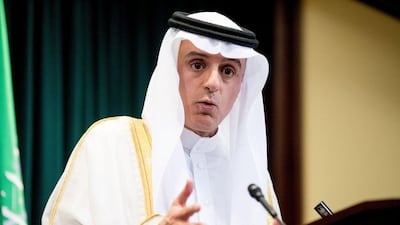The publication of a previously secret section of a report on the September 11 attacks that for years fuelled accusations about Saudi government complicity has not revealed any proof of such links, but is also unlikely to quiet critics.
The 28 pages, which catalogued potentially suspicious connections between Saudi officials in the United States and a number of the hijackers, were part of a congressional report from 2002 but were classified by then president George W Bush on grounds of national security. Many have speculated that his administration thought the pages would strain relations between the two countries.
The connections listed were then investigated by the September 11 Commission, whose final report, released in 2004, found no evidence that the “Saudi government as an institution, or senior Saudi officials individually” had helped the Al Qaeda attackers.
The US house intelligence committee released the pages on Friday, with some redactions, after they were forwarded by the White House. Its chairman, Republican Devin Nunes, said the pages do “not put forward vetted conclusions, but rather unverified leads that were later fully investigated by the intelligence committee”.
Tom Kean and Lee Hamilton, the chairmen of the September 11 commission, said on Friday that they supported the government’s view that the Saudi government as an institution was not linked to the plot, but still considered one of the Saudi nationals mentioned in the congressional report, Fahad Al Thumairy, “a person of interest”.
Mr Al Thumairy was the imam of a local mosque visited by two of the Saudi hijackers, Nawaf Al Hazmi and Khalid Al Mihdhar, while they lived southern California, as well as a low-ranking employee at the Saudi consulate.
The FBI suspected Mr Al Thumairy of assigning a fellow Saudi to help the two men during their stay in Los Angeles, according to a report last year by the 9/11 review commission, another congressional entity.
However, when interviewed by the September 11 commission, Mr Al Thumairy denied knowing the man he was suspected to have assigned – Omar Al Bayoumi, an employee of the Saudi civil aviation authority – despite phone records of 21 calls between them.
Saudi officials have called for the classified section of the congressional report to be released since 2003, and the foreign minister said on Friday that “the matter is now finished”.
“We hope that with the release of these pages, the aspersions that have been cast against the Kingdom of Saudi Arabia over the past 14 years will come to an end” and “we can focus on moving ahead,” Adel Al Jubeir said.
White House spokesman Josh Earnest also stood by the commission’s conclusions, saying that the pages “don’t shed any new light or change any of the conclusions about responsibility for the 9/11 attacks”.
tkhan@thenational.ae

